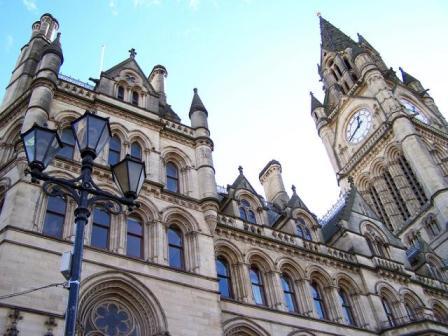City leaders plot path to ‘world-class’ Manchester by 2025

A vision of an economically, environmentally, socially and culturally thriving Manchester has been unveiled today.
It is highlighted in Manchester’s State of the City 2017 report which gives in-depth information on everything from economic growth and environmental issues to health and homelessness.
And it provides the first analysis of the progress of the city council’s Our Manchester Strategy, which sets out the plan for Manchester to be in the top flight of world-class cities by 2025.
The report says that Manchester’s population rose to 549,000 in 2016 and is expected to continue to increase in the coming years.
The city’s economy continues to thrive, driven primarily by growth in three sectors – business, financial and professional services; cultural, creative and digital; and science, research and development.
“Evidence of this growth can be seen across the city, for example, in Oxford Road’s Corridor Manchester area, which hosts a wealth of knowledge-intensive organisations,” it says.
It goes on to say that a highly-skilled workforce is fundamental to Manchester’s economic growth. While 39% of residents have degree level qualifications or above, 10.7% of residents have no qualifications – a significant reduction from 25% in 2004.
Manchester’s primary school children are performing well compared to the national average, but despite recent improvements, performance at secondary school level remains below the national average.
Areas of deprivation in the city are less widespread than they were ten years ago and the overall proportion of children living in poverty in Manchester has fallen, but the city still has one of the highest child poverty rates in the country.
In response to the increasingly visible issue of homelessness and rough sleeping, Manchester’s Homelessness Charter launched in May 2016, bringing together partners from across statutory, voluntary, private and faith sectors to tackle this complex problem.
“Through health and social care integration, the council and its partners are working to address significant health challenges and levels of demand for care within the city,” it said.
The report asserts that confidence has returned to the housing market and the city has seen progress in delivering the quantity of residential development required to meet demand.
“Manchester expects to meet its target of 2,500 new homes this year and exceed it next year, while the Affordable Homes Programme funded the delivery of 228 homes in 2016/17,” it went on.
“Meeting the longer-term demand for housing will be challenging and the city has produced the Residential Growth Action Plan 2017-22, setting out priorities to help achieve the target growth.”
Manchester City Council leader Sir Richard Leese said: “The State of the City report gives our communities, the council and partners across the city an opportunity to take stock of Manchester’s undoubted progress, but also to consider those areas where we need to redouble our efforts in the years ahead.
“Our population and economy continue to grow impressively and we are rightly proud of Manchester’s reputation as an international, outward-looking city.
“However, we recognise that there is vital work to be done on a range of issues, including to improve residents’ health and skills and our environment.
“Through the Our Manchester approach, we are establishing new and stronger relationships between residents, the council and our partners, so that our collective knowledge, skills and efforts are focused on the ambition for Manchester to be a thriving city, offering well-paid work and fair chances, plus world-class connections, sport and culture for everyone.”








